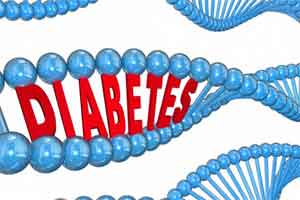- Home
- Editorial
- News
- Practice Guidelines
- Anesthesiology Guidelines
- Cancer Guidelines
- Cardiac Sciences Guidelines
- Critical Care Guidelines
- Dentistry Guidelines
- Dermatology Guidelines
- Diabetes and Endo Guidelines
- Diagnostics Guidelines
- ENT Guidelines
- Featured Practice Guidelines
- Gastroenterology Guidelines
- Geriatrics Guidelines
- Medicine Guidelines
- Nephrology Guidelines
- Neurosciences Guidelines
- Obs and Gynae Guidelines
- Ophthalmology Guidelines
- Orthopaedics Guidelines
- Paediatrics Guidelines
- Psychiatry Guidelines
- Pulmonology Guidelines
- Radiology Guidelines
- Surgery Guidelines
- Urology Guidelines
Long Daytime Naps Linked To Increased Diabetes Risk: Study

Tokyo : Napping for more than an hour during the day could be linked to 45 per cent increased risk of type 2 diabetes, a new study has warned.
Researchers at the University of Tokyo used data from 21 studies involving more than 300,000 people.
They found that after 60 minutes napping becomes harmful, with risk increasing the more time a person is asleep.
However, there was no link with naps of less than 40 minutes.
They said long naps could be a result of disturbed sleep at night, potentially caused by sleep apnoea.
This sleeping disorder could increase the risk of heart attacks, stroke, cardiovascular problems and other metabolic disorders, including type-2 diabetes.
Sleep deprivation, caused by work or social life patterns, could also lead to increased appetite, which could increase the risk of type-2 diabetes, researchers said.
It was also possible that people who were less healthy or in the early stages of diabetes were more likely to nap for longer during the day, 'BBC News' reported.
"Several studies have demonstrated beneficial effects of taking short naps less than 30 minutes in duration, which help to increase alertness and motor skills," said lead author Yamada Tomahide. A short nap finishes before the onset of deep slow-wave sleep.
Entering deep slow-wave sleep and then failing to complete the normal sleep cycle can result in a person feeling disoriented, and even sleepier than before napping, he said.
"Although the mechanisms by which a short nap might decrease the risk of diabetes are still unclear, such duration-dependent differences in the effects of sleep might partly explain our finding," Mr Tomahide said.
"It's likely that risk factors which lead to diabetes also cause napping. This could include slightly high sugar levels, meaning napping may be an early warning sign of diabetes," said Naveed Sattar, professor at the University of Glasgow in the UK.

Disclaimer: This site is primarily intended for healthcare professionals. Any content/information on this website does not replace the advice of medical and/or health professionals and should not be construed as medical/diagnostic advice/endorsement or prescription. Use of this site is subject to our terms of use, privacy policy, advertisement policy. © 2020 Minerva Medical Treatment Pvt Ltd